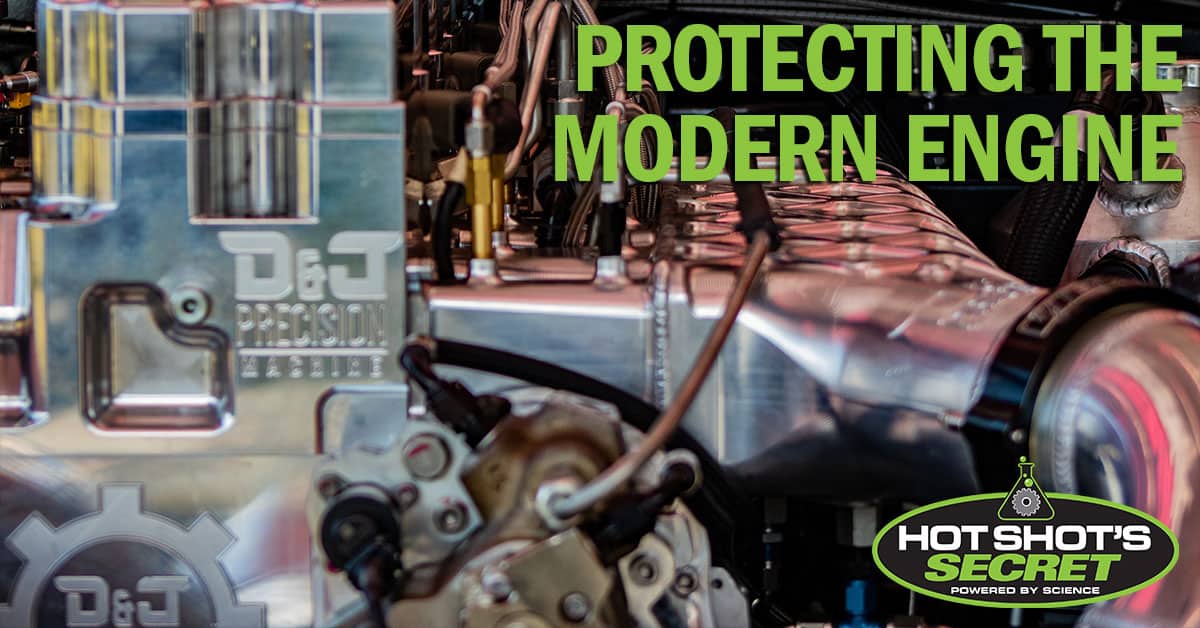
Engines have come a long way over the years in terms of performance and efficiency. Although the basic functionality has remained the same, it seems as if every year some type of new technology is released that pushes the envelope just a little further. This has been happening since the beginning, so by now those little adjustments have added up to result in a much more
powerful and efficient process. Think of the differences between a wolf and a dog. Although they share many of the same characteristics, one is much more dominant in its behavior because of certain instincts the breed has developed somewhere down the line.
Part of what has been done in the modern engine to achieve dominance is to spec the engine for a thinner oil. Thin oil flows more quickly, allowing for a quicker cycling engine. However, we need to consider where to draw the line between performance and protection? Sure we can continue to thin out the oil, but at what point does metal begin touching metal and damage the motor? Perhaps we have already reached that point, but engine manufacturers convince us otherwise. Afterall, if every engine lasted 500,000 miles, manufacturers would sell less engines and make less money. It is ultimately up to you, the vehicle owner, to determine just how long and how well an engine will perform.
How to make your engine last longer
The main goal of most every automobile owner is to make the engine last. Of course, there will be wear and tear parts that break and need replacing along the way, but the engine is the heart and soul of your automobile. Making your engine last can be a tall order, it takes a little know-how, due diligence, and some cash. Perhaps the most obvious answer to long engine life is regular oil changes. Don’t wait until your maintenance required light comes on the dash. Keep a log of the mileage and date of when you last changed your engine oil. Stick to the manufacturer’s maintenance schedule and never go cheap on the quality of oil you put into your engine. Do your research on what oil filter is best for your vehicle and stick to name brands you can trust. If you are putting the best oil in your engine you’ll want to ensure the filter you choose is up to the task as well, plain and simple, don’t go cheap. If you’re serious about keeping your engine running strong and protected you should heavily consider running a full synthetic or PAO Group IV (if applicable to your vehicle). Hot Shot’s Secret line of Diamond Engine Oil is designed to protect your engine and keep it performing how you expect it to, like a beast. Another step you should consider is running a bypass filter. A bypass filter is an extra layer of filtration that filters out the smaller particles that make it through standard oil filters. By taking a small amount of engine oil at a time and bypassing it through the specially designed filter you’re taking out up to 96% of damaging contaminants. Depending on the application and filter design, a bypass filter can filter down to 2 microns which will dramatically extend oil drain intervals. The above steps or precautions can really save you and your engine some headaches down the road.
Why Engine Oil Alone isn’t enough
Tighter tolerances require thinner oils, and while they help with efficiencies they tend to break down more quickly. As they break down and thicken the oil can’t reach certain areas, causing wear. Hot Shot’s Secret FR3 Friction Reducer is exactly what the modern engine needs to survive under these new tolerances. FR3 utilizes an exclusive nano-carbon that fills in the microscopic crevices of internal engine components that oil alone cannot reach. Using FR3 with every oil change will help stabilize your engine oil, increase drain intervals, reduce engine wear, increase fuel economy, and increase horsepower. Not to mention the peace of mind you will have knowing you are providing your modern engine with exactly what it needs to keep you on the road.
Many of today’s vehicle owners are too intimidated by all the technology and warranty requirements to work on their own vehicles. While that is easy to understand considering how much has changed over the years, oil maintenance work is and will be for a long time, something we can all take ownership of to ensure we are getting the most out of our engines.
